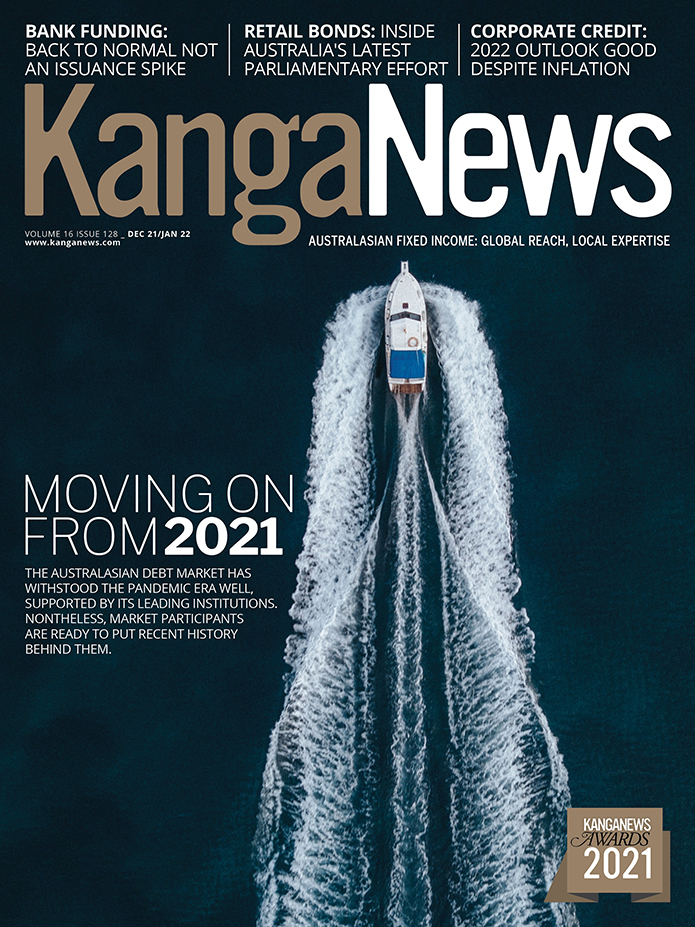Dec/Jan 2021/2022
In this issue

In this issue
- Australian big-four bank heads of funding roundtable
- Corporate credit issuer and investor outlook
- New Zealand and climate risk reporting
- APRA reveals climate-change risk assessment
- Foreign-currency issuance back on the cards for Australian securitisers
- EIB relishes role as Europe's climate bank
- KangaNews Awards 2021 institutional and deal winners
- Revived attempts to kick-start Australian retail corporate bonds
- Analysing the future of working practices
- A future for blockchain bonds?
- Sustainable funding accelerates in New Zealand
KangaNews issues

